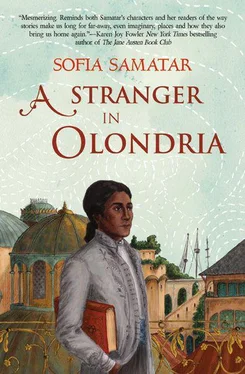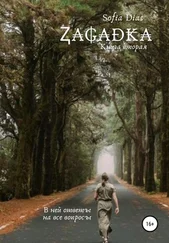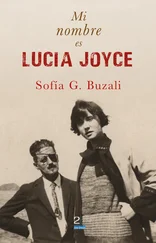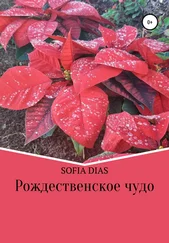He threatened my brother, and, when threats failed to cure his stubborn incompetence, had him flogged behind the house on a patch of sandy ground by two dull-eyed workers from the pepper fields. During the flogging I stayed in our darkened bedroom, sitting on my mother’s lap while she pressed her hands over my ears to shut out my brother’s loud, uncomprehending screams. I pictured him rolling on the ground, throwing up his arms to protect his dusty head while the blows of the stout sticks descended on him and my father watched blankly from his chair… Afterward Jom was given back to us, bruised and bloodied, with wide staring eyes, and my mother went to and fro with poultices for him, tears running freely down her cheeks. “It is a mistake,” she sobbed. “It is clear that he is a child of the wild pig.” Her face in the candlelight was warped and gleaming with tears, her movements distracted. That night she did not tell me stories but sat on the edge of my bed and gripped my shoulder, explaining in hushed and passionate tones that the wild pig god was Jom’s father; that the souls of the children of that god were more beautiful, more tender, than ordinary souls, and that our duty on earth was to care for them with the humility we showed the sacred beasts. “But your father will kill him,” she said, looking into the darkness with desolate eyes. “There is flint in his bowels. He has no religion. He is a Tyomish barbarian.”
My mother was from Pitot, where the women wore anklets of shell and plucked their eyebrows, and her strong religious views were seen in Tyom as ignorant Pitoti superstition. My father’s wife laughed at her because she burned dried fenugreek in little clay bowls, a thing which, my father’s wife said with contempt, we had not done in Tyom for a hundred years. And she laughed at me, too, when I told her one morning at breakfast, in a fit of temper, that Jom was the son of the wild pig god and possessed an untarnished soul: “He may have the soul of a pig,” she said, “but that doesn’t mean he’s not an idiot.” This piece of blasphemy, and the lines around her mouth, proved that she was in a good humor. She remained in this mood, her movements energetic and her nostrils clenched slightly with mirth, as long as my father sought for a means to cure Jom of his extraordinary soul. When the doctors came up from the south, with their terrible eyes and long hats of monkey skin, she served them hot date juice in bright glazed cups herself, smiling down at the ground. But the dreadful ministrations of the doctors, which left my brother blistered, drugged, and weeping in his sleep, did not affect his luminescent soul and only put a shade of terror in his gentle pig’s eyes. A medicinal stench filled the house, and my bed was moved out into another room; from dusk until dawn I could hear the low moaning of my brother, punctuated with shrieks. In the evenings my mother knelt praying in the little room where the family janut , in whose power only she truly believed, stood in a row on an old-fashioned altar.
The jut is an external soul. I had never liked the look of mine: it had a vast forehead, claw feet, and a twist of dried hemp around its neck. The other janut were similar. Jom’s, I recall, wore a little coat of red leather. The room where they lived, little more than a closet, smelled of burnt herbs and mold. Like most children I had at one period been frightened of the janut , for it was said that if your jut spoke to you your death was not far off, but the casual attitudes of Tyom had seeped into me and diluted my fear, and I no longer ran past the altar room with held breath and pounding heart. Still, a strange chill came over me when I glanced in and saw my mother’s bare feet in the gloom, her body in shadow, kneeling, praying. I knew that she prayed for Jom and perhaps stroked the little figure in the red jacket, soothing her son from the outside.
At last those unhappy days ended in victory for my brother’s soul. The doctors went away and took their ghastly odor with them; my father’s wife reverted to her usual bitterness, and my bed was moved back into my room. The only difference now was that Jom no longer sat in the schoolroom and listened to our tutor, but wandered in the courtyard underneath the orange trees, exchanging pleasantries with the birds.
After this my father took a profound and anxious interest in me, his only son in this world; for there was no longer any doubt that I would be his sole heir and continue his trade with Olondria.
Once a year, when the pepper harvest was gathered and dried and stored in great, coarse sacks, my father, with his steward, Sten, and a company of servants, made a journey to Olondria and the spice markets of Bain. On the night before they left we would gather in the courtyard to pray for the success of their venture and to ask my father’s god, the black-and-white monkey, to protect them in that far and foreign land. My mother was very much affected by these prayers, for she called Olondria the Ghost Country and only restrained herself from weeping out of fear that her tears would cause the ship to go down. Early the next day, after breakfasting as usual on a chicken baked with honey and fruit, my father would bless us and walk slowly, leaning on his staff, into the blue mists of the dawn. The family and house servants followed him outside to see him off from the gateway of the house, where he mounted his fat mule with its saddle of white leather, aided by the dark and silent Sten. My father, with Sten on foot leading the mule, formed the head of an impressive caravan: a team of servants followed him, bearing wooden litters piled high with sacks of pepper on their shoulders, and behind them marched a company of stout field hands armed with short knives, bows, and poisoned arrows. Behind these a young boy led a pair of donkeys laden with provisions and my father’s tent, and last of all a third donkey bore a sack of wooden blocks on which my father would record his transactions. My father’s bright clothes, wide-brimmed hat, and straw umbrella remained visible for a long time, as the caravan made its way between the houses shaded by mango trees and descended solemnly into the valley. My father never turned to look back at us, never moved, only swayed very gently on the mule. He glided through the morning with the grace of a whale: impassive, imponderable.
When he returned we would strew the courtyard with the island’s most festive flowers, the tediet blossoms which crackle underfoot like sparks, giving off a tart odor of limes. The house was filled with visitors, and the old men sat in the courtyard at night, wrapped in thin blankets against the damp air and drinking coconut liquor. My father’s first wife wept in the kitchen, overseeing the servants, my mother wore her hair twisted up on top of her head and fastened with pins, and my father, proud and formidably rich after four months in a strange land, drank with such greed that the servants had to carry him into his bedroom. At these times his mood was expansive. He pulled my ears and called me “brown monkey.” He sat up all night by the brazier regaling the old men with tales of the north; he laughed with abandon, throwing his head back, the tears squeezing from his eyes, and one evening I saw him kiss the back of my mother’s neck in the courtyard. And, of course, he was laden with gifts: saddles and leather boots for the old men, silks and perfumes for his wives, and marvelous toys for Jom and me. There were musical boxes and painted wooden birds that could hop on the ground and were worked by turning a bit of brass which protruded from under their wings; there were beautiful toy animals and toy ships astonishing in their detail, equipped with lifelike rigging and oars and cunning miniature sailors. He even brought us a finely painted set of omi , or “Hands,” the complex and ancient card game of the Olondrian aristocracy, which neither he nor we had any notion of how to play, though we loved the painted cards: the Gaunt Horse, the Tower of Brass. In the evenings I crept to sit behind a certain potted orchid in the hall which led from the east wing of the house into the courtyard, listening to my father’s tales, more wonderful than gifts, of terraced gardens, opium, and the barefoot girls of the pleasure houses.
Читать дальше












